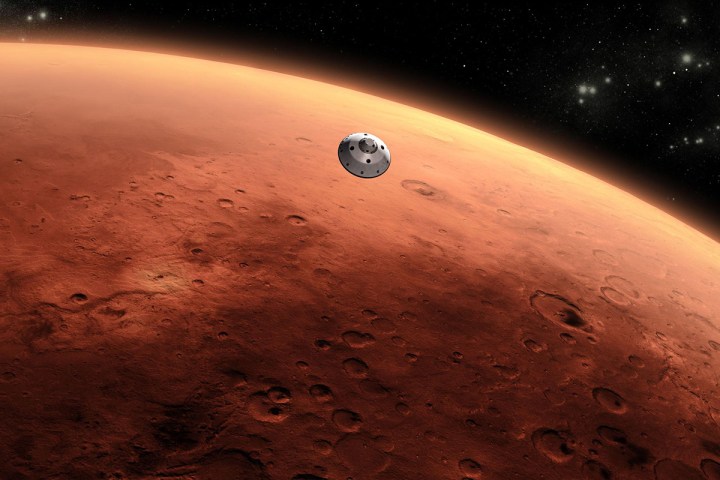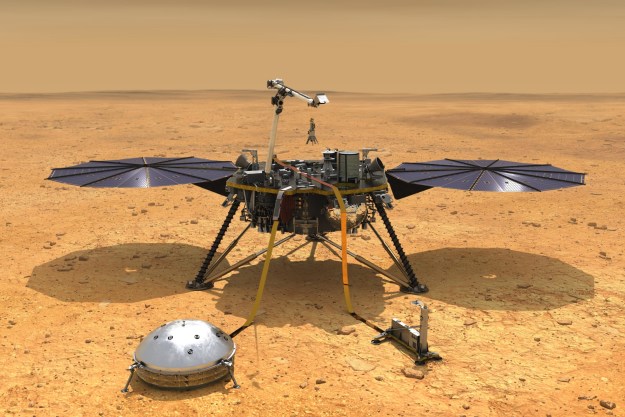
Sure, it’s not actually soil straight from the source, but it does contain many of the same elements as what might be found on the red planet. And not only were scientists able to grow crops, but they were able to grow them “abundantly.” Radishes, peas, rye, and tomatoes were all harvested in the course of the latest experiment, and contained “no dangerous levels” of heavy metals, according to the team from Wageningen University in the Netherlands.
“These remarkable results are very promising,” senior ecologist Wieger Wamelink noted of the results. “We can actually eat the radishes, peas, rye and tomatoes, and I am very curious what they will taste like.”
Scientists have actually been trying to emulate agriculture on Mars since 2013, and over the last three years, have raised 10 different crops. And while those grown on Martian soil on Earth are safe to eat, it’s unclear if plants actually grown on Mars would be consumable — after all, it’s unclear as to whether or not these crops would absorb heavy metals like cadmium, copper, and lead.
“It’s important to test as many crops as possible, to make sure that settlers on Mars have access to a broad variety of different food sources,” said Wamelink.
And more tests will soon be carried out on six more crops, including potatoes, to determine their viability on Mars. Researchers say they will be turning to a crowdsourcing campaign for the funds needed to sustain their work, and if I were a betting woman, I’d bet that people would be more than happy to chip in to improve their Martian descendants’ future diets.
NASA has ambitious plans for a trip to Mars within the next decade or so, and of course, Elon Musk has also expressed interest in colonizing Mars. And if we want to enjoy our time on the red planet when we get there, we better have some delicious produce to eat.
Editors' Recommendations
- Scientists want to farm oxygen from the Martian soil
- NASA’s InSight put into safe mode during Martian dust storm
- China’s Zhurong rover rolls onto Martian surface for first time
- Ingenuity helicopter aces 3rd test flight over the Martian surface
- NASA’s Mars helicopter touches down on the Martian surface


